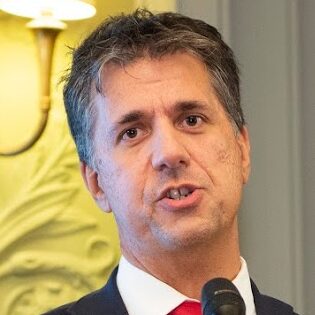Since 2006, Europe has required technicians to be certified in order to handle F-gases. To this day the training programmes vary among countries and are not mandatory, while the certification is. In Europe, half a million technicians are already certified to handle F-gases, and this increase of qualified technicians generally correlates to improvements in equipment installations and repairs. Equipment performance is higher, leak rates are lower, and grocers and retailers are happier.
However, we can already see that there are far more technicians qualified to service existing, traditional systems than those qualified to service newer, emerging technologies. In other words, there is a gap between the skill level of the technicians and the speed at which new technologies are entering the market. This is logical: the technicians can’t get ahead of innovation. They are always behind because the demand for technicians to become trained on a new technology only happens after the new technology is in-market and requires servicing – not before. It’s a circle, or a loop, where we are always trying to help technicians catch up to the speed of innovation.
In the coming years, this will result in a very critical situation: the new regulations of the European Union (probably the rest of the world will follow its example in a few years) are absolutely great on paper when it comes to achieving some of the ambitious ecological goals promised by the Kigali amendment to the Montreal Protocol and by many other international climate deals, but they are not considering that the Technicians may not be ready in time to make those ambitions concrete. It’s a really basic problem: many of the newer and greener technologies are based on natural refrigerants, but they are absolutely more challenging than the classic HFC, mostly because of their flammability. Technicians must be trained once more, in order to work in complete safety with these kind of gases, and this can be done only with a new cooperation between private companies and national institutions.
The HVAC sector is ready for a new mandatory certification for the technicians, for their own safety. No one is willing to work on a dangerous system with a not-fully-trained colleague, and nobody should.
In the last years, together with other 20 EU Associations, AREA has worked on a project called REAL Alternatives, which has been initially funded by the European Commission and is now self-sustained. This project aims to increase visibility of new and emerging technologies, and by extension, demonstrate their adoption by the industry and the need to become trained to service them. We have certified more than 2,000 technicians (and counting!) on new technologies through this programme, which is free of charge and available online – although it is highly recommended to join real-life training classes by Official Training Providers (https://realalternatives.eu/training-providers). The practical part of the training must be held in a qualified training center that is fully and specifically equipped. Training is available in 20 countries worldwide and in 17 different languages. The hands-on practice is especially critical because, as stated before, some new refrigerants require high operating pressures or have different toxicity and flammability properties. If equipment is not properly installed or serviced by competent contractors, it could pose health and safety risks to the end user and the technician.
Also, it’s absolutely critical to tackle the illegal trades that are actually a scourge on the market. Right now, a car boot could be filled outside the EU with canisters of an HFC blend, R404A, that would sell, hours later, for ten times as much in Poland. Margins have since shrunk as legions have got in on the action. But contraband hfcs are still so valuable that canisters are sometimes given space on boats trafficking migrants from north Africa to Europe: this must stop right now. This phenomenon is endangering people, the climate and also the honest sellers.
Every month, a new run of seizures of illegal gases hit the news, but the actual results are simply not enough. Many associations and authorities (EFTCT, EIA, OLAF and so on) are working hard every day to tackle down the smugglers, but they are not supported enough by the central governments.
2050, the “net-zero carbon emission year” is just around the corner. We’re working every day to ensure that the “coolest sector” will be ready to switch as soon as possible to a completely green new suit, but it’s up to us and to the authorities support companies and technicians to make sure to succeed. Time is running out: to achieve every goal, we must act right now.

Marco Buoni
